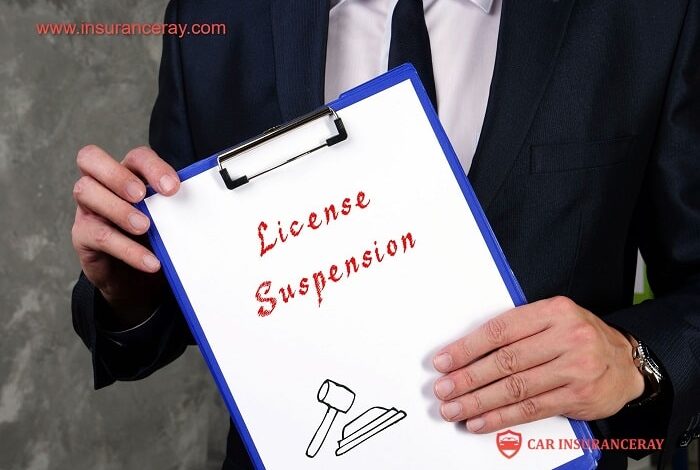Can you insure your car in a different state? The answer is yes, but it’s not as simple as just changing your address on your insurance policy. Each state has its own set of car insurance laws and regulations, which can significantly impact your coverage and premiums. Understanding these differences is crucial for ensuring you have the right protection when driving in another state.
Whether you’re moving to a new state, taking a road trip, or commuting across state lines for work, knowing how state-specific insurance requirements can affect you is vital. This article explores the intricacies of insuring your car in a different state, from understanding state-specific laws to choosing the best insurance options for your needs.
Understanding State-Specific Insurance Requirements

Car insurance laws and regulations vary significantly from state to state, making it crucial to understand the requirements of the state where you plan to insure your vehicle. These differences stem from various factors, including the state’s unique driving environment, legislative priorities, and the overall cost of insurance in the region.
Factors Influencing Insurance Premiums
Understanding the key factors that influence insurance premiums can help you make informed decisions about your coverage and potentially save money. These factors can be broadly categorized as follows:
- State-Mandated Coverage: Each state has its own set of minimum coverage requirements, which define the types of insurance you must carry to drive legally. These requirements typically include liability coverage, which protects you financially if you cause an accident, and personal injury protection (PIP), which covers medical expenses for you and your passengers in an accident, regardless of fault. The specific coverage requirements and limits can vary significantly from state to state.
- Traffic Density and Accident Rates: States with high traffic density and higher accident rates tend to have higher insurance premiums. This is because insurers face a greater risk of claims in these areas. For example, states with major metropolitan areas or densely populated regions often have higher insurance premiums compared to rural states.
- Cost of Living and Healthcare: The cost of living and healthcare expenses in a state can also influence insurance premiums. States with higher costs of living and healthcare expenses tend to have higher insurance premiums, as insurers need to cover the increased costs of medical treatment and repairs.
- Demographics: Factors such as age, driving history, and credit score can also influence insurance premiums. States with a higher proportion of young drivers or drivers with poor driving records may have higher premiums, as these factors are associated with a higher risk of accidents.
Insuring Your Car in a Different State

Moving to a new state often involves registering your car and obtaining insurance. Understanding the process and your options can help you make informed decisions about your car insurance.
Registering Your Car and Obtaining Insurance
When you move to a new state, you’ll need to register your car with the Department of Motor Vehicles (DMV) and obtain insurance that meets the state’s minimum requirements. The process typically involves:
- Notifying your current insurer: Inform your current insurer about your move and the new state you’ll be residing in. They may be able to provide coverage in the new state.
- Obtaining a new driver’s license: You’ll need to apply for a new driver’s license in the new state. This may require a vision test, written exam, and/or road test, depending on state requirements.
- Registering your car: You’ll need to register your car in the new state. This usually involves providing proof of insurance, vehicle title, and driver’s license.
- Obtaining insurance: You’ll need to obtain car insurance that meets the minimum requirements of the new state.
Primary and Secondary Insurance, Can you insure your car in a different state
When driving in a different state, you may have two insurance policies:
- Primary insurance: This is your main car insurance policy, which is usually issued by the state where you reside. It covers you for accidents and other incidents in your home state.
- Secondary insurance: This is an additional policy that provides coverage for accidents and other incidents in other states. It’s usually purchased by those who frequently travel to other states or those who have moved to a new state but haven’t yet registered their car.
Using Your Current Insurer vs. Finding a New Insurer
There are advantages and disadvantages to using your current insurer or finding a new insurer in your new state:
Using Your Current Insurer
- Advantages:
- Convenience: You may find it easier to continue with your current insurer, as you’re already familiar with their policies and procedures.
- Potential discounts: Some insurers offer discounts for long-term customers or for bundling multiple insurance policies.
- Disadvantages:
- Higher premiums: Your current insurer may charge higher premiums for coverage in a different state, as insurance rates vary by location.
- Limited coverage: Your current insurer may not offer all the coverage options you need in the new state.
Finding a New Insurer
- Advantages:
- Lower premiums: You may be able to find lower premiums with a new insurer, especially if you shop around and compare quotes.
- More coverage options: New insurers may offer a wider range of coverage options that are more suitable for your needs in the new state.
- Disadvantages:
- Time-consuming: Finding a new insurer and switching policies can be time-consuming and require research.
- Potential for higher deductibles: New insurers may have higher deductibles than your current insurer.
Factors to Consider When Choosing Insurance in a New State
You’ve successfully moved your car to a new state and taken care of the necessary registration and licensing. Now, it’s time to address the important matter of car insurance. Switching to a new insurer or staying with your current one can significantly impact your insurance premiums and coverage.
Comparing Quotes from Multiple Insurers
To make an informed decision about your car insurance in the new state, it’s crucial to compare quotes from multiple insurers. Each insurance company has its own pricing structure, coverage options, and discounts, so getting quotes from several companies allows you to identify the best value for your needs.
Key Factors to Consider When Choosing an Insurer
- Coverage Options: Insurance companies offer various coverage options, such as liability, collision, comprehensive, and uninsured/underinsured motorist coverage. It’s essential to understand the specific coverage requirements in your new state and choose a policy that meets your needs.
- Discounts: Many insurers offer discounts for various factors, including safe driving records, good credit scores, multi-car policies, and safety features in your vehicle. Explore the discounts available from different insurers to potentially lower your premium.
- Customer Service: When you need to file a claim or have a question about your policy, you want to be confident that the insurer will provide excellent customer service. Consider factors like the insurer’s reputation for handling claims, availability of online resources, and customer reviews.
Comparing Features and Benefits Offered by Different Insurance Companies
Insurance companies often offer unique features and benefits that can make them stand out from the competition. Here are some examples:
- Telematics Programs: Some insurers offer telematics programs that track your driving habits and reward safe driving behavior with discounts.
- Ride-Sharing Coverage: If you use ride-sharing services, consider insurers that offer specific coverage for this activity.
- Accident Forgiveness: Some insurers offer accident forgiveness programs that waive the rate increase associated with your first at-fault accident.
Potential Challenges and Considerations

While insuring your car in a different state offers flexibility, it’s essential to be aware of potential challenges and considerations. Understanding these aspects can help you make informed decisions and ensure smooth transitions.
Higher Premiums
State-specific factors like traffic density, accident rates, and the cost of repairs can significantly impact insurance premiums. Moving to a state with a higher risk profile could result in higher premiums compared to your previous state. For instance, if you move from a rural area with low accident rates to a densely populated urban center, your insurance premiums might increase.
Limited Coverage Options
States have varying insurance regulations and coverage requirements. Some states might offer more comprehensive coverage options than others, leading to limitations in your choice of coverage. For example, you might not be able to obtain specific optional coverages like roadside assistance or rental car reimbursement in your new state.
Implications of Driving an Uninsured or Underinsured Vehicle
Driving without proper insurance coverage in a new state can have serious consequences. Penalties can include hefty fines, license suspension, or even vehicle impoundment. Moreover, if you’re involved in an accident without adequate insurance, you could be held personally liable for damages, potentially leading to significant financial burdens.
Avoiding Potential Issues
- Research Insurance Requirements: Before moving, familiarize yourself with the insurance requirements and regulations of your new state. Check the state’s official website or consult with an insurance agent.
- Compare Quotes: Get quotes from multiple insurance providers in your new state to compare coverage options and premiums. This will help you find the most suitable policy at a competitive price.
- Consider a Non-Standard Insurance Provider: If you have a driving history that might be considered high-risk, explore non-standard insurance providers who specialize in insuring drivers with less-than-perfect records.
- Maintain Adequate Coverage: Ensure that your insurance policy provides sufficient coverage for your needs, including liability, collision, comprehensive, and uninsured/underinsured motorist coverage.
- Notify Your Insurance Provider: Inform your current insurance provider about your move as soon as possible. They might be able to adjust your policy to meet the requirements of your new state or recommend a suitable provider in your new location.
Impact on Existing Coverage
Moving your car to a different state can impact your existing insurance policy in various ways, potentially affecting your coverage, premium, and deductible. It’s essential to understand these potential changes and communicate with your current insurer about your plans.
Changes to Coverage
Your current insurance policy may not provide the same level of coverage in a different state. This is because each state has its own set of minimum insurance requirements, and your current policy may not meet the requirements of your new state. For instance, some states require higher liability limits than others, and your current policy may not meet those limits.
Conclusive Thoughts
Navigating the complexities of car insurance across state lines can be daunting, but with careful planning and understanding, you can ensure you have the necessary coverage and avoid potential headaches. By comparing quotes, considering your individual needs, and communicating effectively with your insurer, you can confidently drive in another state with peace of mind.
Expert Answers: Can You Insure Your Car In A Different State
Do I need to notify my current insurer if I’m driving my car in another state?
It’s always best to inform your insurer if you’re driving your car in a different state for an extended period. This ensures you have the necessary coverage and avoids any potential issues with your policy.
What if I get into an accident in a different state?
Your insurance policy should cover you in most cases, but it’s essential to check your policy details and understand your coverage limits in the other state. It’s also advisable to file a claim with your insurer as soon as possible.
Can I get a discount on my insurance if I’m only driving my car in another state for a short period?
Some insurers may offer discounts for occasional trips to other states, but this depends on the insurer and the specific circumstances. It’s worth inquiring about any potential discounts.
What if I move to a new state permanently?
You’ll need to register your car in the new state and obtain insurance from an insurer licensed in that state. Your current insurer may be able to provide you with a policy in the new state, or you can choose a new insurer. It’s essential to compare quotes and choose the best option for your needs.







